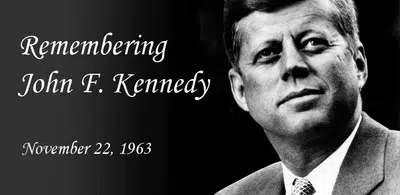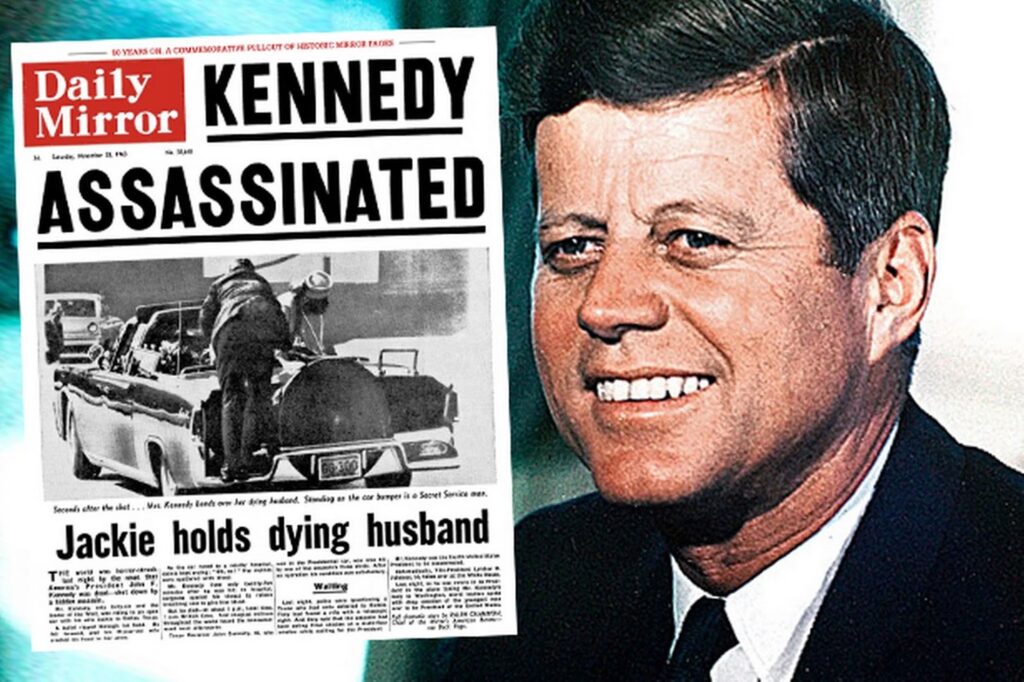Today John F. Kennedy would be judged as a conservative politician. He was our 35th President…
Wikipedia says:
John Fitzgerald Kennedy (May 29, 1917 – November 22, 1963), often referred to by his initials JFK and the nickname Jack, was an American politician who served as the 35th president of the United States from 1961 until his assassination near the end of his third year in office. Kennedy was the youngest person to assume the presidency by election. He was also the youngest president at the end of his tenure.[2] Kennedy served at the height of the Cold War, and the majority of his work as president concerned relations with the Soviet Union and Cuba. A Democrat, he represented Massachusetts in both houses of the U.S. Congress prior to his presidency.
From the Huffington Post:
The John F. Kennedy Presidential Library and Museum (Library) is devoting one year to a centennial celebration of President Kennedy. On its website, the Library states, “John F. Kennedy’s legacy is a vision of political action and public service based on courage, service, inclusion and innovation.”
The site highlights Kennedy’s legacy in five areas: public service, civil rights, peace & diplomacy, arts & culture, and science & innovation. That legacy includes:
- Public Service. In 1961, Kennedy established the Peace Corps to encourage mutual understanding between America and people of other nations and cultures. The Peace Corps thrives today. Since its inception, some 200,000 Peace Corps volunteers have served in over 139 countries.
- Civil Rights. Kennedy advocated for full legal equality for African Americans. A comprehensive civil rights bill was drafted in the Fall of 1963. It was passed after Kennedy’s death as the Civil Rights Act of 1964. The civil rights movement moved forward from there breaking barriers and tearing down walls.
- Peace & Diplomacy: In October 1963, Kennedy signed a Limited Nuclear Test Ban Treaty among the US, Russia, and Great Britain. Thirty-three years later, the United Nations General Assembly adopted the Comprehensive Nuclear Test Ban Treaty signed by 71 nations. President Clinton signed the Treaty but the Senate rejected it by a vote of 51 to 48.
- Arts & Culture. JFK’s effect as a leader for arts and culture in the United States is unparalleled. During his presidency, he took the lead in raising funds for a National Cultural Museum. After his assassination, Congress designated the National Cultural Museum as a “living memorial” to Kennedy. In 2017, the Kennedy Center for the Performing Arts is one of the foremost venues of its type in the world.
- Science and Innovation. As part of the space race against Russia, in 1961 called upon the nation to commit to the ambitious goal of landing a man on the moon by the end of the decade. Within a year, Alan Shepherd and Gus Grissom became the first Americans to travel in space. In February of 1962, astronaut and future Senator John Glenn orbited the earth. On July 20, 1969 the Apollo 11 crew set foot on the moon and came back safely. America’s record in exploring the galaxy has grown exponentially since then.
Dan OBrien
This site has continually been active in one form or the other for 25+ years.


